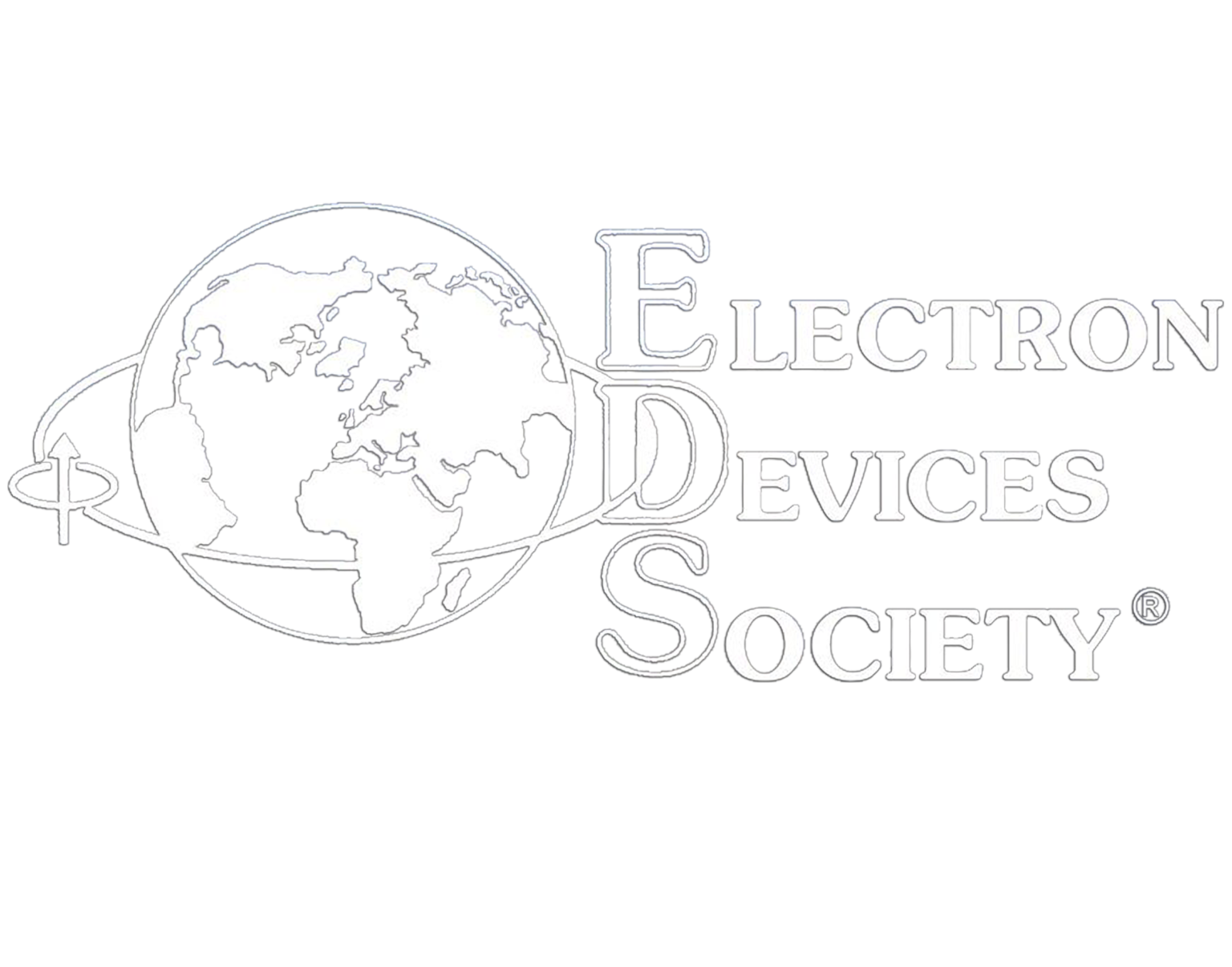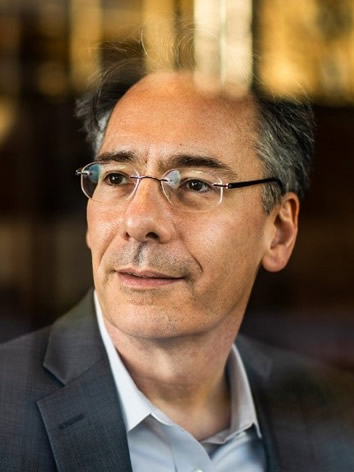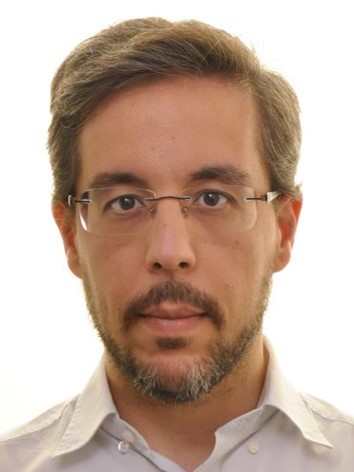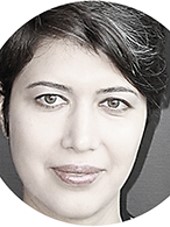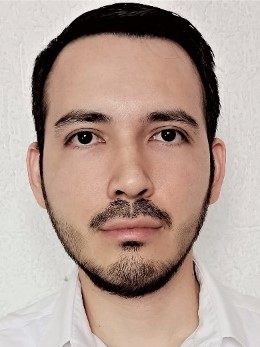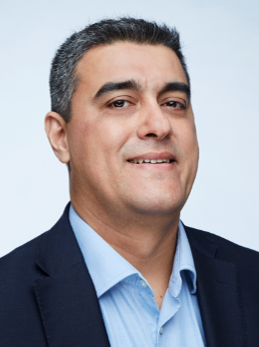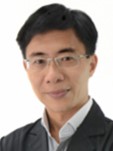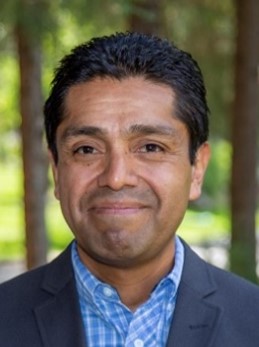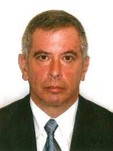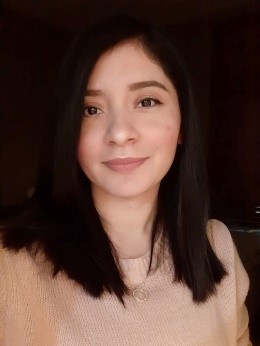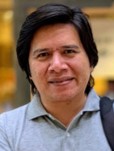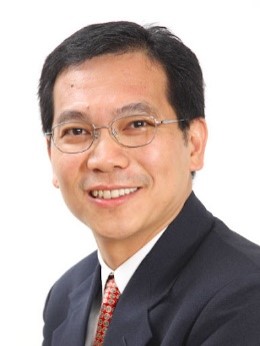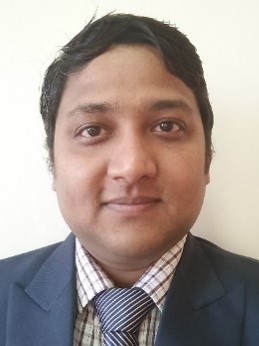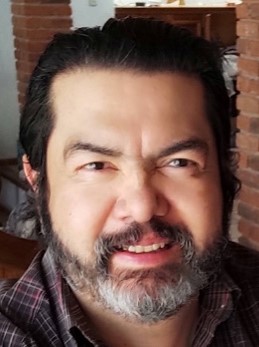Speakers
Click en el speaker para leer su biografía.
Click en el speaker para leer su biografía.
William D. Oliver
Professor of Physics, Professor of Electrical Engineering and Computer Science
Lincoln Laboratory Fellow. Director, Center for Quantum Engineering
Massachusetts Institute of Technology
USA
William D. Oliver is jointly appointed Professor of Electrical Engineering and Computer Science, Professor of Physics, and Lincoln Laboratory Fellow at the Massachusetts Institute of Technology. He serves as the Director of the Center for Quantum Engineering and as Associate Director of the Research Laboratory of Electronics. Will’s research interests include the materials growth, fabrication, design, and measurement of superconducting qubits, as well as the development of cryogenic packaging and control electronics. Will is a Fellow of the American Physical Society, Senior Member of the IEEE, and is appointed to the U.S. National Quantum Initiative Advisory Committee. He also serves on the US Committee for Superconducting Electronics and is an IEEE Applied Superconductivity Conference (ASC) Board Member. He received his PhD in Electrical Engineering from the Stanford University in 2003.
Juan José García Ripoll
Quantum Information and Foundations Group
Institute of Fundamental Physics, Consejo Superior de Investigaciones Científicas (IFF-CSIC)
Spain
Juan José García Ripoll is a senior researcher at the Institute of Fundamental Physics in the Spanish Research Council (IFF-CSIC). He leads a group of staff and young scientists working in the interface between quantum hardware and quantum algorithms, working in many platforms, from ultracold atoms to superconducting circuits. This includes the participation in two projects, Avaqus and SuperQuLAN, working in superconducting quantum simulators and quantum links between quantum computers.
Anita Fadavi Roudsari
Department of Microtechnology and Nanoscience,
Quantum Technology Laboratory
Chalmers University of Technology
Sweden
Anita Fadavi Roudsari received her PhD degree in electrical engineering from University of Waterloo, Canada. Currently she works with the Quantum Technology Laboratory at Chalmers University of Technology, where her research is focused on design and process development for travelling wave parametric amplifiers and improving the coherence and readout of superconducting qubits.
Ricardo Roman Ancheyta
Optics Department, Quantum Optics and Photonics Group
INAOE
Mexico
He got his Ph.D. in Physics from the National Autonomous University of Mexico in 2018 by working on quantum vacuum fluctuations of the electromagnetic field. After that, he was a postdoctoral researcher at Koç University in Istanbul, Turkey, where he investigated topics in quantum thermodynamics like quantum thermalization and quantum heat engines. Currently, he is a researcher at the National Institute of Astrophysics, Optics, and Electronics. His interests lie in quantum transport, thermal rectification of systems at the nanoscale, and the ultra-strong coupling regime of the light-matter interaction where superconducting quantum circuits typically operate.
Blas Manuel Rodriguez Lara
Director Nacional Programa Ingeniería Física Industrial
Photonics and Quantum Systems, School of Engineering and Sciences
Tecnológico de Monterrey
Mexico
Investigador Nacional SNI 3. President Quantum Information Division of the Mexican Physical Society. Marcos Moshinsky Chair 2018. Bachelor IFI99, M.Sc. specialized in optics, INAOE 2002, M.Sc. in quantum mechanics, KTH 2004, Ph.D. specialized in optics, INAOE 2005. Full Professor, UAT 2005-2007. Postdoctoral researcher, IF-UNAM 2007-2009. Postdoctoral researcher, NTHU 2009-2011. Postdoctoral researcher, NUS 2011-2013. Postdoctoral researcher, UFMG 2013. Investigador Titular A, INAOE 2013-2014. Investigador Titular B INAOE 2015-2016. Profesor de Cátedra ITESM 2015-2016
Kuan Eng Johnson Goh
Institute of Materials Research and Engineering (IMRE), Agency for Science Technology and Research (A*STAR)
Department of Physics, National University of Singapore
School of Physical and Mathematical Sciences, Nanyang Technological University
Singapore
Kuan Eng Johnson Goh is Head of Department of Quantum Technologies for Engineering, and Principal Scientist at IMRE A*STAR (Singapore). Trained as Physicist (VUW, New Zealand), Engineer (Sheffield, UK) and Educator (NIE/NTU, Singapore), he went on to obtain his PhD in 2007 from the Centre of Excellence for Quantum Computer Technology in the University of New South Wales (Sydney). He joined A*STAR in 2006 and contributed to materials science and engineering research ranging from atomic-scale 3D printing with silicon atoms, to highly conductive 3D printable thermoplastics, to 2D semiconductors and to quantum devices. His current endeavor is to meld his multidisciplinary research expertise in quantum information technologies, nanoelectronics, machine learning and additive manufacturing towards disruptive quantum technologies.
Daniel Ferrusca Rodríguez
Astrophysics Department, Cryogenics and Millimeter Instrumentation Group
INAOE
Mexico
Eceived his Ph.D. degree from the National Institute of Astrophysics, Optics and Electronics, Mexico in 2006, where currently is Researcher Titular B. His main research interests are sub-Kelvin cryogenic systems, superconducting detectors for millimeter wavelength astronomy and low temperature readout electronics for qubits. Among his projects he led a team for the construction of a cryogenic system for the Spanish Gran Telescopio de Canarias, has collaborated in the installation and commissioning of several millimeter wavelength instrumentation in telescopes in Hawaii, Chile and Mexico. Currently he is part of a team to characterize CMOS devices for quantum computing applications between INAOE and Central Institute of Engineering, Electronics and Analytics ZEA-2 in Germany and also part of a team between INAOE, UNAM and the University of Pretoria to development of instrumentation for the Hartebeesthoek Radio Astronomy Observatory at South Africa.
Roberto Stack Murphy Arteaga
Electronics Department, Microelectronics and RF Characterization Group
IEEE-EDS Distinguished Lecturer
INAOE
Mexico
Roberto S. Murphy-Arteaga (M´92, SM´02) received his B.Sc. degree in Physics from St. John’s University, Minnesota, and got his M.Sc. and Ph.D. degrees from the National Institute for Research on Astrophysics, Optics and Electronics (INAOE), in Tonantzintla, Puebla, México. He has been a researcher at INAOE since 1988. Since then, he has presented over 110 talks at scientific conferences, directed 11 Ph.D. theses, 19 M.Sc. and 2 B.Sc. theses, published more than 150 articles in scientific journals, conference proceedings and newspapers, and is the author of a text book on Electromagnetic Theory. He is currently a senior researcher with the Microelectronics Laboratory, as well as the Head of the Electronics Department. His research interests are the physics, modeling and characterization of the MOS Transistor and passive components for high frequency applications, especially for CMOS wireless circuits, as well as antenna design for high frequency applications. He is a Senior Member of IEEE, a Distinguished Lecturer of the Electron Devices Society, a member of the Mexican Academy of Sciences, and a member of the Mexican National System of Researchers (SNI).
Gabriela Mendez Jeronimo
Postdoctoral Researcher at the Department of Applied Physics
Electronics and Telecommunications Department, RF Characterization Group
CICESE
Mexico
Gabriela Méndez-Jerónimo received the B.S. degree in electronics from the Instituto Tecnológico de San Luis Potosí, Mexico, in 2012, and the M.Sc. and Ph.D. degrees in electronics from INAOE, San Andrés Cholula, Mexico, in 2014 and 2018, respectively. In 2016, she was an Intern with the BEOL Process Integration Group, imec, Leuven, Belgium, where she was involved with the Nano-Interconnect Program. From 2019 to 2021 she was part of the PolyGrames Group, Polytechnique Montréal, Canada. In 2021, she joined the Centro de Investigación Científica y de Educación Superior de Ensenada (CICESE), Mexico, as posdoctoral researcher with the Department of Electronics and Telecommunications. Her research interests include high-frequency measurement, characterization, modeling of passive components, microwave sensors, and interconnects for high-speed applications in packaging and semiconductor technologies.
Joel Molina Reyes
Electronics Department, Microelectronics Group
INAOE
Mexico
Joel Molina-Reyes received the B.S.E.E. degree (magna cum laude) from the Universidad Veracruzana, Mexico, the M.Sc. degree in Microelectronics from the National Institute for Astrophysics, Optics and Electronics (INAOE), Mexico, and the Ph.D. in Advanced Applied Electronics from the Tokyo Institute of Technology, Tokyo, Japan. He is currently a Professor with INAOE. His research interests include the physics and technology of CMOS-compatible electron devices based on ultra-thin metal and high dielectric constant insulators for application in advanced logic, memory, sensing, MEMS, novel nanostructured materials, photocatalysis and photoactive technologies. He has authored or co-authored over 80 peer-reviewed research publications.
Kin Leong Pey
Engineering Product Development
Singapore University of Technology and Design
Singapore
Kin-Leong Pey is currently the Associate Provost (Undergraduate Studies & SUTD Academy) and the Kwan Im Thong Hood Cho Temple Chair Professor in Healthcare Engineering at the Singapore University of Technology and Design (SUTD). Kin-Leong was appointed by the Singapore Ministry of Education to take up the current SUTD position in establishing SUTD in 2010. Kin-Leong received his Bachelor of Engineering (1989) and Ph.D (1994) in Electrical Engineering from the National University of Singapore. Previously, he held a Fellowship appointment in the Singapore-MIT Alliance and various research positions at the Institute of Microelectronics, Chartered Semiconductor Manufacturing, Agilent Technologies and National University of Singapore. Prior to taking up the current appointment at SUTD, he was the Head of the Microelectronics Division, Director of the Nanyang NanoFabrication Center and Director of the Microelectronic Centre in the School of EEE at the Nanyang Technological University. Kin-Leong is a senior member of IEEE, a Fellow of the ASEAN Academy of Engineering & Technology and Institute of Engineer, Singapore. He was the General Chair of IPFA2001, Singapore and the co-General Chair of IPFA2004, Taiwan. Kin-Leong was the Guest Editor of IEEE Transactions on Devices in and Materials Reliability in 2003-05 and 2007, and the Chair of the Singapore IEEE REL/CPMT/ED Chapter in 2004-05 and 09. He has been an Editor of IEEE Transactions on Devices and Materials Reliability for more than 10 years. Kin-Leong has published more than 209 international refereed publications, 223 technical papers (including 6 keynotes and 68 invited talks) at international meetings/conferences and 7 book chapters, and holds 40 US patents. Kin-Leong has contributed significantly to the CMOS gate dielectric reliability, especially in the areas of physical analysis of ultra-thin dielectric breakdown mechanism. He was recognized by the IEEE International Integrated Reliability Workshop (IIRW) as one of the top 20 experts of the Front‐End device reliability (http://www.iirw.org/ref/reliabilityexperts.html) in 2018 and as a panelist of the Reliability Expert Forum (REF) of “Memory Technologies and Reliability” in 2019. Kin-Leong has graduated 35 PhD and more than 15 Master theses. With his pioneering effort, the SUTD undergraduate program is now being ranked as the “Top Emerging Leader in Engineering Education” in the MIT benchmarking study on the global state of the art in engineering education.
Alok Ranjan
Postdoctoral Researcher at Engineering Product Development
Singapore University of Technology and Design
Singapore
Dr. Alok Ranjan is currently a postdoctoral fellow at Engineering Product Development pillar at Singapore University of Technology and Design (SUTD). Alok is passionate about developing experimental techniques for the physical and failure analysis of the nanoscale devices. Alok is soon joining the Department of Physics at the Chalmers University of Technology (Sweden) as a postdoctoral researcher and his work would focus on the advanced Transmission Electron Microscopy (TEM) imaging and spectroscopy characterization of emerging 2D layered materials and semiconductor logic and memory devices. Alok has obtained his PhD in the field of nanoscale reliability of gate dielectrics under the mentorship of Prof. Pey Kin Leong (SUTD) and Dr. Sean O’Shea (IMRE, A*STAR). During PhD, Alok has been extensively applying the scanning probe microscopy (AFM and STM) to probe defect in gate dielectrics. Alok has published more than 20 technical papers and a book chapter, including 5+ technical papers presented as a lead author at International Reliability Physics Symposium (IRPS). Alok also sits on the reviewer panel for various journals including Applied Physics Letters, Scientific Reports, ACS Applied Materials and Interfaces, Microelectronics Reliability and conferences including International Symposium on the Physical and Failure Analysis of Integrated Circuits (IPFA).
Arturo Ponce Pedraza
Adjunct Director of the Physics and Astronomy Department
The University of Texas at San Antonio
USA
Arturo Ponce es profesor y director adjunto del Departamento de Física y Astronomía de la Universidad de Texas en San Antonio. También es investigador visitante en INAOE. Doctor en Ciencia de Materiales por la Universidad de Cádiz, España (2003), Maestro en Ciencias con especialidad en Dispositivos Semiconductores por la Benemérita Universidad Autónoma de Puebla, México (1999). Investigador colaborador en el desarrollo del primer difractómetro de electrones con precesión en la empresa NanoMEGAS, Bélgica (2003). Realizó estancias posdoctorales en el Instituto de Física de la UNAM y el CNRS en Francia entre 2004 y 2007. Ha trabajado como Profesor/Investigador en Instituciones como el ITESM, el Centro de Investigación de Química Aplicada (CIQA) en Saltillo donde fue jefe del Laboratorio de Microscopía, posteriormente director del Centro de Microscopía Avanzada Kleberg en UTSA de 2011 a 2013. Es autor profesional de más de 140 publicaciones y dos patentes. Ha dirigido 5 tesis doctorales en UTSA y la Universidad Nacional de Colombia y dos de maestría en CIQA. Es miembro de la Asociación Mexicana de Microscopía desde 2006, de la Materials Research Society y de la Microscopy Society of America. Es miembro de la mesa directiva de la Asociación Mexicana de Microscopía y miembro del Sistema Nacional de Investigadores. Así mismo es miembro de la Academia Mexicana de Ciencias desde 2018.
Alberto Herrera Gomez
Professor of Materials Science
Multifunctional Materials Division
CINVESTAV
Mexico
Postdoctoral (Electrical Engineering). Stanford University, 1994. Ph.D. (Applied Physics). Stanford University, 1994. M.S. (Applied Physics). Stanford University, 1991. M.S (Physics). CINVESTAV, 1988. Bachelor (Physics). Universidad Autónoma Metropolitana, 1985. El Dr. Alberto Herrera es especialista en la caracterización de materiales ultra delgados por medio de la técnica AR-XPS, de la cual, él ha sido uno de los más prolíficos investigadores experimentales en México y quien ha contribuido incluso en el desarrollo de software comercializado a nivel mundial para el análisis de datos. Ha recibido el Premio “Francisco Javier Espinoza Beltrán” (Sociedad Mexicana de Ciencia y Tecnología de Superficies y Materiales, 2019) “Por sus contribuciones pioneras en el campo de la espectroscopia fotoelectrónica de rayos X (XPS), en particular en el mejoramiento de la técnica de análisis y adquisición de datos, y por la formación de una escuela de XPS en México”. Fellow of the American Vacuum Society “For his seminal contributions to developing quantitative surface analysis, especially for XPS” (2016). Member of the National Research System of Mexico (Sistema Nacional de Investigadores) with the top category (Nivel III). First Vice Chairman of the E42 Committee (Surface Analysis) of the ASTM (2009-to date). Chairman of the surface analysis Terminology Subcommittee of the ASTM (2008-to date). Member of the Advisory Board of the Surface and Interface Analysis journal (2015 to date). Secretary of the Applied Surface Science Division (2010-2013) of the International Union for Vacuum Science and Technology (IUVSTA). Member at Large of the Applied Surface Science Division of the American Vacuum Society (2007-2011). “Daniel Schechtman” Chair. Universidad Autónoma Metropolitana (2012-2013). President of the Mexican Vacuum Society (2002-2004). Visiting Professor, University of Texas at Dallas (2005-2007). 100+ papers, 1500+ citations, h-index 25. Graduate students: 11 Ph.D, 15 M.S., 1 B.D. His current main research topics are: Physical origin of the background signal in XPS data. XPS data analysis and data acquisition. Early stages of the oxidation of transition metals. Mass transport in multilayered nanofilms. He is also a member in charge of the development of international standards: “Group Leader” in the International Standardization Organization (ISO/TC201:SC7), for the development of a standard for the assessment of the background signal in XPS data. “Technical Contact”, in the ASTM-E42 committee for the revision of the standard about the background signal in XPS data.
William D. Oliver
Professor of Physics, Professor of Electrical Engineering and Computer Science
Lincoln Laboratory Fellow. Director, Center for Quantum Engineering
Massachusetts Institute of Technology
USA
William D. Oliver is jointly appointed Professor of Electrical Engineering and Computer Science, Professor of Physics, and Lincoln Laboratory Fellow at the Massachusetts Institute of Technology. He serves as the Director of the Center for Quantum Engineering and as Associate Director of the Research Laboratory of Electronics. Will’s research interests include the materials growth, fabrication, design, and measurement of superconducting qubits, as well as the development of cryogenic packaging and control electronics. Will is a Fellow of the American Physical Society, Senior Member of the IEEE, and is appointed to the U.S. National Quantum Initiative Advisory Committee. He also serves on the US Committee for Superconducting Electronics and is an IEEE Applied Superconductivity Conference (ASC) Board Member. He received his PhD in Electrical Engineering from the Stanford University in 2003.


